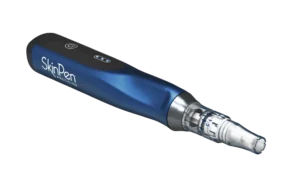
Rosacea
Rosacea is a chronic inflammatory condition that affects both men

As summer approaches, and with it all of the outdoor activity that comes with sunny days and warm weather, it is important to ensure that you have a proper sunscreen for daily use. While sunscreen is intended to keep our skin safe from burning and help reduce the risk of skin cancer, there are plenty of suspect ingredients that can do more harm than good when it comes to the protection of our skin.
Of the 16 active ingredients found in sunscreens today, 14 ingredients have some sort of controversy either by the FDA, AAP, or other organizations that are looking after our health. While this seems overwhelming, there are solid ingredients out there that can help you remain safe under the sun.
At Dynamic Dermatology, we want you to have the best skin possible. That all starts with proper sunscreen usage!
Choosing the Right Ingredients
The two ingredients that are universally accepted as safe are zinc oxide and titanium dioxide. These two are the only ingredients that have FDA approval, and are the only natural ingredients in sunscreen. Both zinc oxide and titanium dioxide are naturally occurring minerals. Instead of penetrating into the skin, both ingredients sit on top of the skin and create an effective barrier, reflecting the UVA and UVB rays from the sun.
When looking for sunscreen, be sure that zinc oxide and titanium dioxide are the primary ingredients.
Avoiding the Wrong Ingredients
Just as there are safe ingredients in sunscreen, there are also harmful ingredients. It is important to know which sunscreen ingredients to avoid. Here are 5 ingredients that are generally accepted as unsafe for use:
Stay Safe Out There!
At Dynamic Dermatology, we want to make sure you have a great summer. That starts by using the proper sunscreen in order to mitigate cancer risks, protect the skin from burning, and maintain a healthy appearance. Be sure to use sunscreens with zinc oxide and titanium dioxide, and avoid the wrong ingredients listed above.
If you have any questions about sunscreen, feel free to give Dynamic Dermatology a call! We would love to assist in any way possible and prepare you for a great summer of beaches, barbecues, and beautiful skin!

Rosacea is a chronic inflammatory condition that affects both men

Who doesn’t want less wrinkles and better hair! Well your

Welcome to 2020! This month we want to touch on